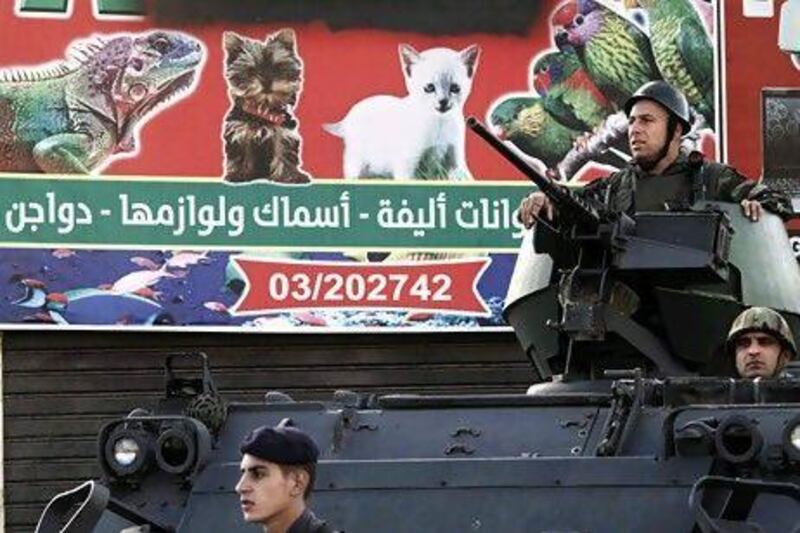As Lebanon suffered yet another bout of sectarian flu on Sunday, I was at a conference in Turkey, a country where the legacy of Kemal Atatürk has cemented the stature of the 89-year-old secular republic.
The military's role might make lobster-pink liberals jumpy, but "Kemalism" works. Granted, Turkey still isn't Denmark, but it is a shining example of a regional superpower, a country that has been able to focus on growth and development. That's how I see it anyway, but then again, I live in a place where any hint of prosperity has been consistently derailed by religious extremism.
We Lebanese are culturally very similar to the Turks - they did, after all, rule us for 400 years - but in terms of economic and social development we are still in the Stone Age. We might sniff at Turkey's US$25 billion (Dh91.82bn) tourist industry as being a bit too mass market for our liking. We might argue our food is 10 times better than that being served up by our former Ottoman masters, and that almost everyone in the Lebanese service industry speaks better English and French.
But what Turkey can offer the tourist sector - apart from a cleaner, less built-up and litter-free country - is security; and having witnessed Lebanon unravel over the past six months, even a half-wit would conclude that without security there can be no genuine economic growth. Lawlessness means no confidence and no investment, a fact underlined on Monday when Lebanon's Byblos Bank/AUB Consumer Confidence Index fell to an all-time low, citing "security breaches" as one of the factors for the unfortunate record. In the meantime, the Lebanese government appears paralysed in the face of rampant sectarian lawlessness that threatens to spread across the country.
Tripoli, Lebanon's "second city" was the first to catch the virus that mutated out of the Syrian crisis. It was seen as a pressure valve. The feeling was that, as long as the sectarian anger was restricted to Tripoli, it could be contained, a feeling that was no doubt of little comfort to the Tripoli merchants' association, which must have had the worst tourist season on record since the end of the civil war.
Sidon, Lebanon's third city if you like, was always going to be next, especially ever since Ahmad Al Assir, the hard-line Sunni cleric, set up shop there this summer to oppose the militant Hizbollah. On Monday, the day after three people died in a gun battle between his supporters and Hizbollah, the government threatened to clamp down on anyone carrying what it called "non-state" weapons. So far it is nothing more than an onlooker as tensions escalate.
There had been considerable investment in Sidon in the past decade, especially in retail development. Malls have sprung up attracting a clutch of international brands names such as Zara and Mango, but in the past quarter, security concerns and general uncertainty have caused retail activity to drop by some 50 per cent.
Beirut is where what is left of commercial activity has taken refuge but still there is a huge sense of frustration, especially from a tourism industry that was decimated over the summer. Insult was added to injury in September when a no-smoking law was introduced in all public places, including bars and restaurants, a move that the food-and-drinks sector claims has resulted in revenues falling by more than 50 per cent. With businesses struggling to stay afloat until Christmas, many are simply ignoring the ban.
"I am letting people smoke," one restaurant owner told me this week. "I don't care. Let the state come and fine me. I will say, 'OK, I will pay as long as you arrest everyone in the shooting in Sidon on Sunday'. They know who they are. When they do that, I will pay my fine. Until then, I reckon they have bigger fish to catch."
Michael Karam is a freelance writer based in Beirut





